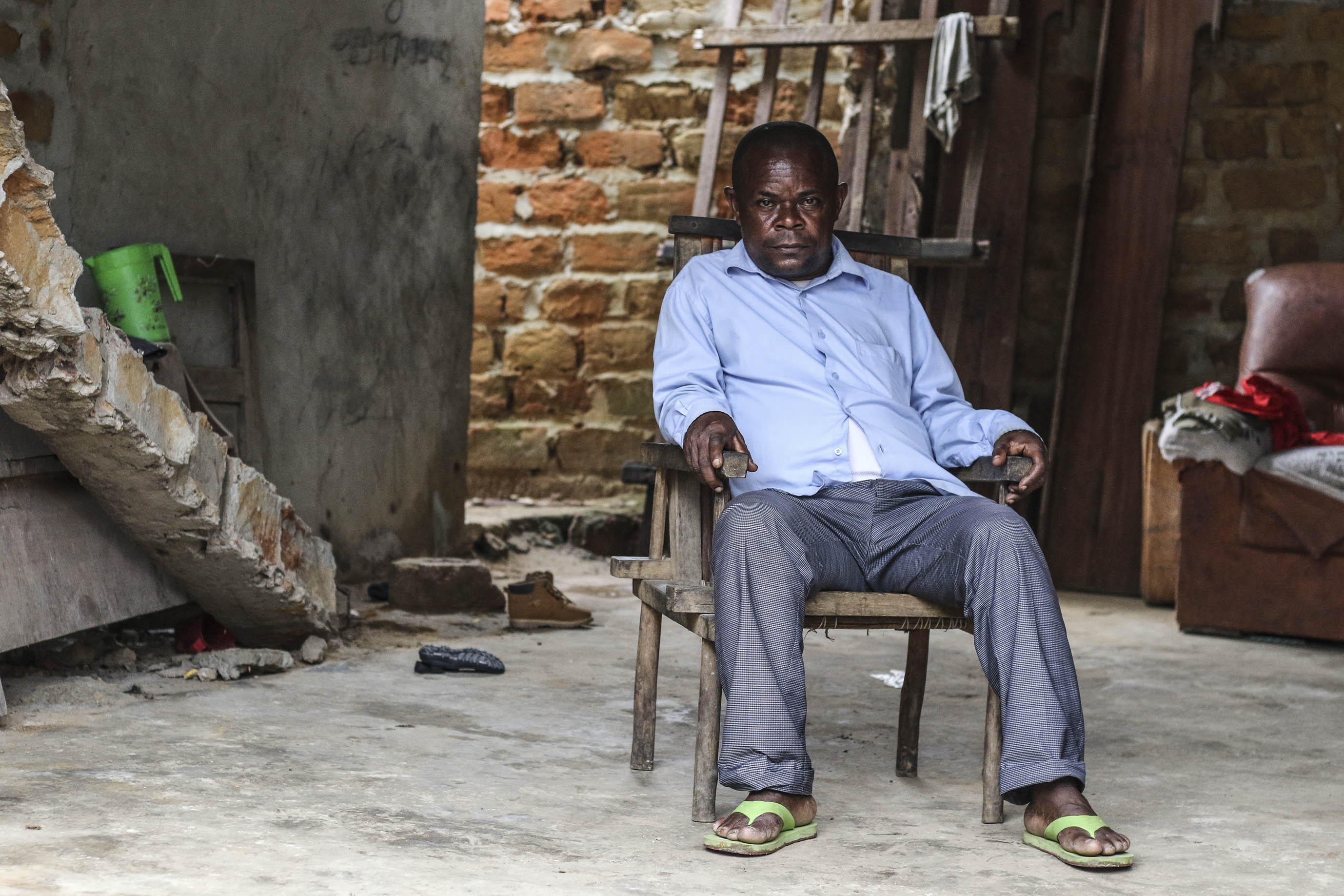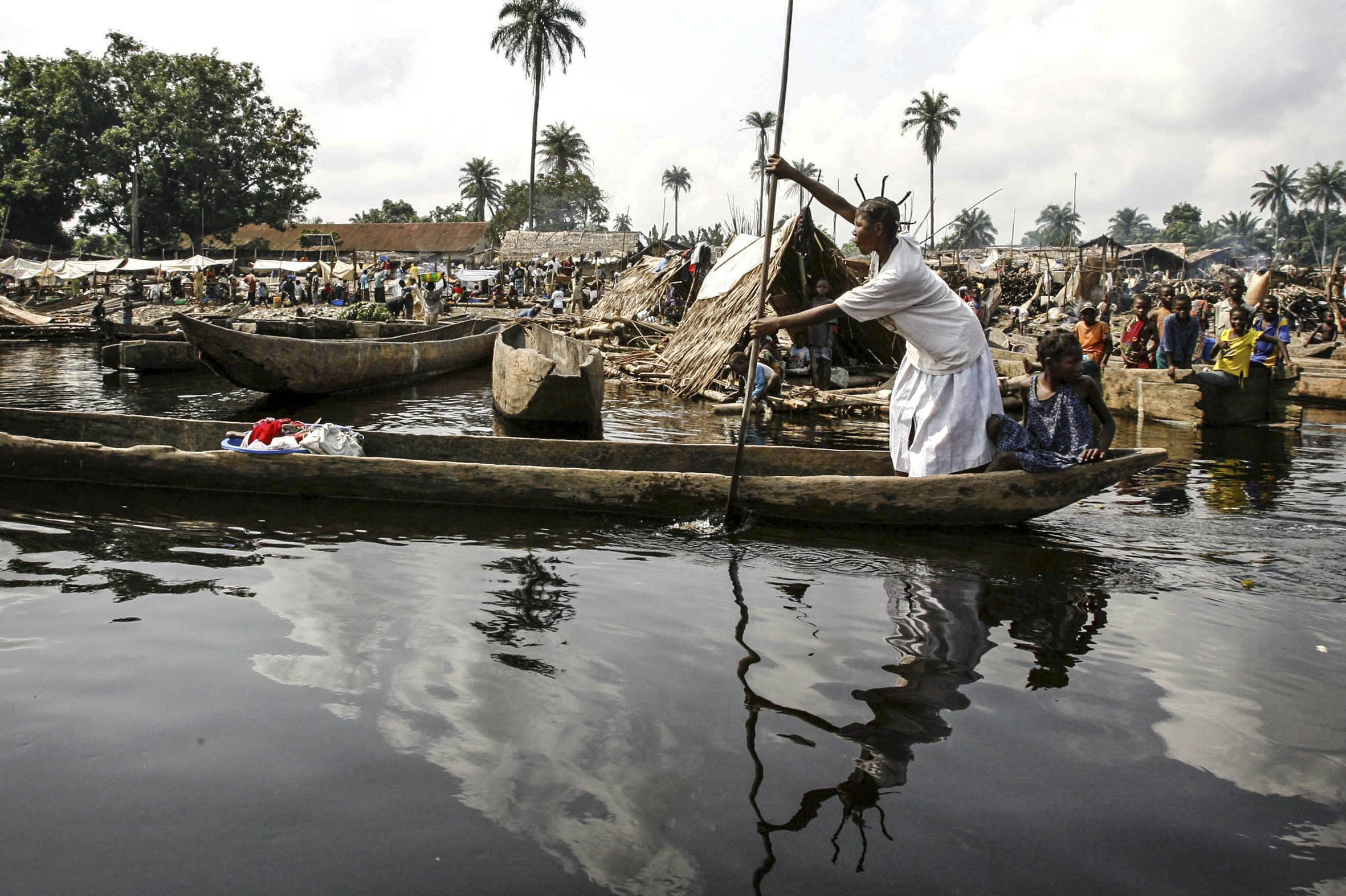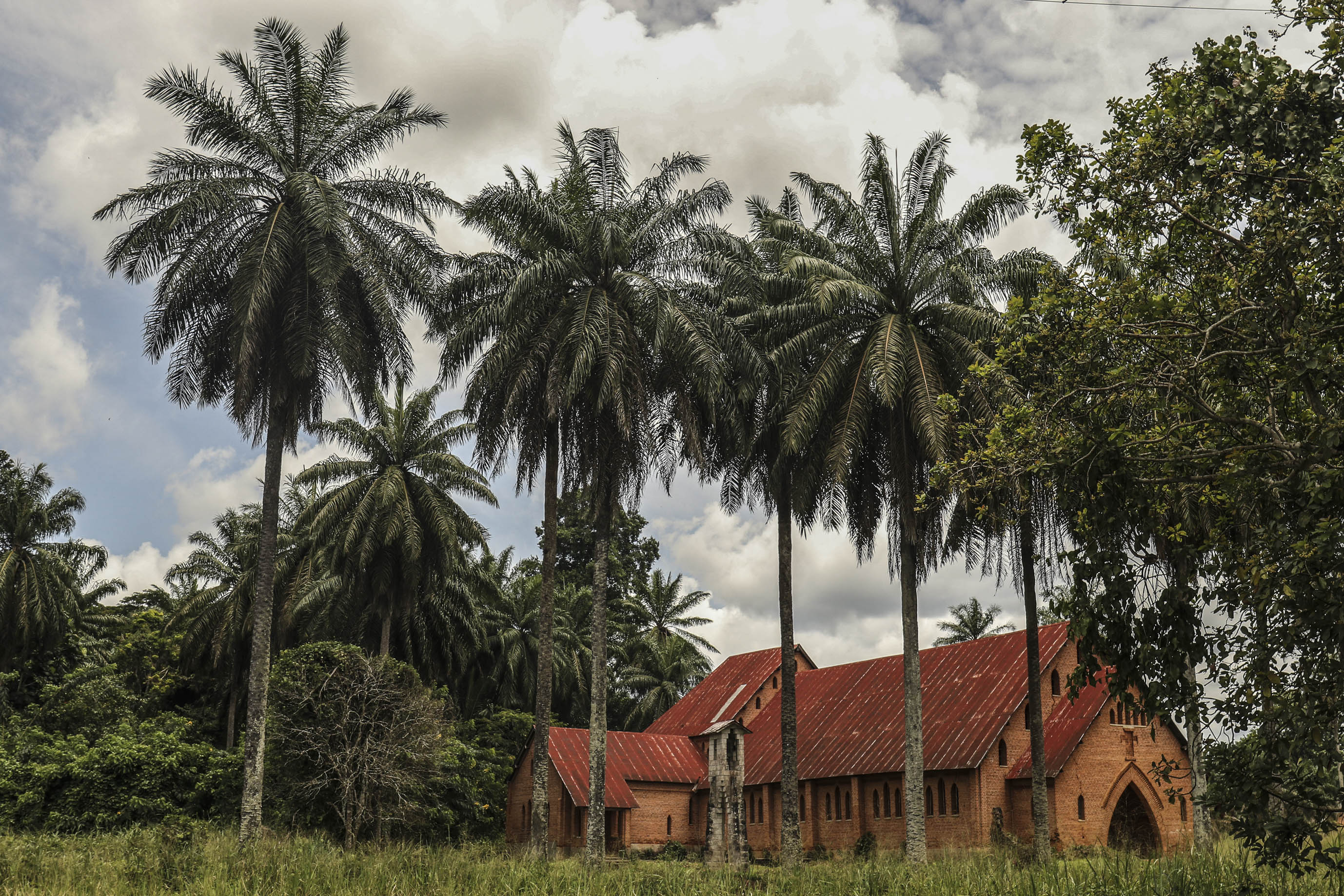The Juice department at MCB.
Far from the international spotlight, the Democratic Republic of Congo’s (DRC’s) crisis is silently suffocating its citizens.
On a humid morning in Mbandaka — the crumbling provincial capital of the densely forested Équateur province in the DRC — 50-year-old Jerome Bokele sits on a broken wooden chair in the courtyard of his small breezeblock compound.

[Jerome Bokele is the first and only parliamentarian from the marginalised Batwa Pygmy minority in the Democratic Republic of Congo’s historically neglected Équateur province, which is widely considered to be an anti-government stronghold, a reputation bolstered by it being the home of formal rebel warlord Jean-Pierre Bemba. (Christopher Clark)]
Bokele is the province’s first and only parliamentarian from the indigenous and routinely marginalised Batwa pygmy minority. As such, he’s something of a local celebrity.
But, like other politicians in Équateur’s provincial assembly, which in the past two years has been crippled by factionalism and infighting, Bokele says he has not received his government salary for more than six months.
“Some days I can’t even pay for public transport to get to the provincial assembly,” Bokele says, motioning towards a group of motorbike taxi drivers waiting for patrons by a ramshackle row of market stalls on the corner of the block.
Mitterand Bafango (27) is one of these young chauffeurs, plying his trade across the potholed roads and rutted dirt tracks that bisect Mbandaka — a river port city with a failing economy once built on shipping, agriculture and forestry.
In the past two months, Bafango has seen fuel prices more than double from 1 900 Congolese francs a litre (about $1.20) to about 4 000 Congolese francs (about $2.50).
These drastic hikes are the result of a nationwide fuel shortage caused by the depreciation of the Congolese franc against the United States dollar, which is used to purchase oil.
For Bafango, this has severely dented his already meagre earnings, as many locals are simply unable to afford a rate increase that would help Bafango to compensate for his exorbitantly elevated fuel expenditure. “It’s very hard to make enough money to even eat nowadays.”
Not a priority
Ever since DRC President Joseph Kabila refused to step down at the end of his two-term limit in December last year, the country has been thrust into a renewed period of uncertainty. This is being felt acutely by Congolese citizens like Bafango.
The situation will probably deteriorate further in coming months: at the beginning of November, eagerly anticipated elections were pushed back to December next year, contravening an accord brokered by the Catholic Church last New Year’s Eve. The accord was supposed to guarantee the election of a new head of state this year.
The ongoing political impasse and its effect on an already creaking economy has sparked sporadic protests in a number of the country’s towns and cities, including Mbandaka. These have been routinely met by a violent state response, leaving scores of protesters dead.
Meanwhile, rebel militias have resurfaced in the long-afflicted Kivu provinces in the east, and a bloody conflict in central Kasai has claimed more than 3 000 lives and uprooted more than 1.5-million people.
According to Danny Molongi, project co-ordinator for an Mbandaka-based human rights organisation called Gashe, the plight of citizens in Équateur is being ignored as a result of these more headline-grabbing crises in other areas of the country.
“There are issues everywhere, so I think the state and the international humanitarian community are overloaded and the various problems in our province are just not a priority,” Molongi says.
He adds that “Équateur has a history of being neglected”, citing the province’s desperately inadequate transport links with other parts of the country as a contributing factor.
Local journalist Guy N’djali says Équateur’s reputation as an anti-government stronghold has also resulted in years of state neglect.
Just down the street from Molongi’s small office, N’djali points out a large, smiling mural of former rebel warlord Jean-Pierre Bemba, a native of Équateur, emblazoned on the wall of a local radio station.
“Bemba is certainly still very popular here,” N’djali says.
Violent past, uncertain future
Équateur’s isolation may to some extent have helped to stymie the violent unrest spreading through other parts of the country, but Bemba’s legacy shows that conflict would not be unprecedented in the region.
During the Congolese War of 1998 to 2003 — which claimed an estimated 5.4-million lives — Bemba’s Uganda-backed rebel army controlled most of Équateur, from where it engaged in a number of skirmishes with government troops that left towns and villages in tatters.
More recently, in 2009 and 2010, a long-running dispute over fishing rights spiralled into a widespread ethnic conflict that pushed more than 200 000 refugees into neighbouring Republic of Congo.
There are worrying signs that Équateur is teetering on the edge of another conflict.
In June this year, the interim chief of Monusco (the United Nations mission in the DRC) in Mbandaka, Colonel Lamine Komara, announced that the body would begin community policing training in response to what he called “growing insecurity” in the city.
The overstretched and under-resourced police department has attributed such insecurity to a roving group of bandits called the Kuluna. The group is said to be behind a spate of murders, rapes and armed robberies across Mbandaka and on nearby stretches of the Congo River, which serves as the city’s western boundary and its main transport link to the country’s capital, Kinshasa.
At the end of October, interim provincial governor Jeannine Intombi initiated daily joint military and police patrols across Mbandaka after the killing of a state official, allegedly by the Kuluna.
Bokele, the Batwa parliamentarian, says the police’s failure to suppress the bandits has led to reprisal attacks and lynching of suspected Kuluna members by rag-tag vigilante groups. Bokele adds that some locals are worried such tit-for-tat could lead to a “small civil war” in Mbandaka.
On the margins
But Bokele is more concerned with the cause of Batwa Pygmy communities living in impoverished settlements that have mushroomed on the fringes of Mbandaka.
“We Pygmies are being treated like animals and no one is paying attention,” Bokele says.
A proposition for the protection of Pygmy rights was approved by the DRC’s National Assembly in 2014 but is yet to be implemented, says Gashe’s Molongi, reiterating that “other problems are being prioritised by the government”.
Hit hard by decades of conflict and forced off their ancestral forest lands by rapid population growth and poorly regulated industrial logging, the Batwa have been relegated to the margins of Mbandaka’s society. There, they are cut off from healthcare and education by the rising cost of living and ever-shrinking job prospects.
“Congo’s indigenous people have always been very attached to and dependent on the forest, so when they leave the forest, they become very vulnerable,” says Molongi.
As the most marginalised group in Équateur, Pygmies increasingly bear the brunt of the province’s insidious slide into political and economic collapse.
Outside a lopsided, cracked mud-brick house in the Batwa settlement of Nkoli Nkoli, 17-year-old Pembe Bakamba says she had to stop attending secondary school in 2015 because her parents could no longer afford her fees. That same year, her elder brother died from an undiagnosed illness because the family lacked the means to send him to hospital in Mbandaka; there is no school or clinic in Nkoli Nkoli.
“I want to go back to studying so that one day I can become a teacher and help support my family. That is my dream, but I don’t know if it will ever be possible,” Bakamba says.
The absent state
In the small rural village of Ilonga Po, deep inside Équateur’s riverine rainforest, a new red-brick health centre with a corrugated-iron roof stands in the middle of a small clearing surrounded by dense swaths of palms, vines and ferns.
The health centre was financed by Amis des Bonobo du Congo (ABC), a local conservation project that seeks to rehabilitate orphaned and trafficked bonobos — critically endangered great apes found only in the Congo, in a section of forest leased from Ilonga Po’s tribal authorities.
As well as healthcare, ABC has put considerable resources into developing sustainable fishing and farming practices in Ilonga Po and other villages surrounding its “community reserve”.
The organisation has also provided materials such as desks and textbooks to the area’s woefully under-resourced primary schools, which were closed in September because of a nationwide teacher strike over insufficient pay.
“The state is doing nothing for these people,” says Fanny Minesi, ABC’s director in Kinshasa. “We are supposed to be a conservation project, but we can’t ignore the amount of need that there is. We have a responsibility to do what we can.”
But eight months after construction began, the new health centre stands empty. A few basic medical supplies are still kept in a dark, dilapidated mud-brick hut that served as the village’s previous clinic. Minesi says that beds, a solar fridge and lab materials will only be available for the new centre next year, pending overseas funding.
“We are doing our best, but there will always be things that are lacking,” says Moise Lofinda, ABC’s local project director. “We are not the state. We simply can’t do everything.”
With no roads by which to reach Ilonga Po, any materials must be transported from the market town of Basankusu in dugout canoes with small outboard motors; it’s at least a full day’s round trip along labyrinthine river channels.

[Dugout canoes are the major form of transport in a region with few roads. (Finbarr O’Reilly/Reuters)]
“Petrol is absolutely crucial to all of our work here. The increase in petrol prices is making things very hard for us. Sometimes there just isn’t any petrol available at all,” Lofinda says.
The residents of Ilonga Po have no choice but to wait. “When the health centre is functioning it will certainly make a difference, but we need more help. There are a lot of sick people here — children are dying,” says head nurse Jean Motomola. “I do what I can, but I haven’t received a salary for two years. How can I go on working like that?”
The Congolese ministry of communications did not respond to multiple requests for comment on this story.
‘Busy with surviving’
The annual rains have come late to Équateur this year, following drought across various parts of DRC in 2016, and flash floods in others. This changing climate has played a role in prompting a cholera epidemic, the likes of which has rarely been seen in the DRC, according to Doctors Without Borders (MSF) head of mission Tommaso Santo. MSF says that more than 30 000 people are still affected by cholera nationwide and there have been more than 500 deaths.
MSF’s attempts to fight the outbreak have been focused on the worst-afflicted provinces, which do not include Équateur.
“There are just not enough resources. We are one of the only actors that is responding [to the epidemic] at the moment, but MSF is not enough on its own,” Santo says.
Yves Willemot, head of communications for the United Nations Children’s Fund (Unicef), says that, although the cholera epidemic has been mostly contained in Mbandaka since July this year, “in reality, it’s a cyclical thing — it comes back every three years with the floods”.
The province’s health facilities are increasingly unfit to deal with such resurgences. “They lack everything: qualified caregivers, essential medication, salaries, medical ethics,” Willemot says.
In Basankusu, a two-day journey upriver from Mbandaka, British missionary Francis Hannaway says that the late rains this year, combined with the spiralling financial crisis, has also seen an increase in the number of malnourished children being brought into town from surrounding villages.
Unicef claims that across Équateur more than 23% of children under the age of five are suffering from chronic malnutrition. In Basankusu, some of the most severe cases of malnutrition are admitted to a filthy, fly-infested ward in the town’s central hospital, where they lie listlessly on broken mattresses that stink of old sweat and urine.
“The state has never really been capable of meeting the need, and nowadays even less so,” Hannaway says. “The hospitals in Basankusu don’t receive anything from the government.”

[In Basankusu, a market town, local health centres are struggling to cope with the arrival of increased numbers of malnourished children from surrounding villages. (Christopher Clark)]
Along with former local radio presenter Judith Bondjemo, Hannaway has helped to set up a day centre that offers essential support to the inadequate hospital facilities.
The centre has treated more than 700 malnourished children since 2014, but can only accommodate about 100 children at a time. “That’s not enough,” says Hannaway.
Outside the centre, children are slumped on raffia mats in the shade, waiting to be fed. Local women who volunteer at the centre distribute mugs of maize porridge mixed with peanuts and sugar.
Once they’ve eaten, the children perk up noticeably, but many of their mothers still appear to be exhausted. Bondjemo says that they probably also haven’t eaten for days, but the centre cannot afford to feed them as well.
“In truth, perhaps 80% of people here in Basankusu are not even aware that there’ll be elections in 2018,” Hannaway says. “They’re just busy with surviving.”
In the DRC’s Équateur province, they are not the only ones just trying to survive.
Christopher Clark reported from the Democratic Republic of Congo on a fellowship from the International Reporting Project